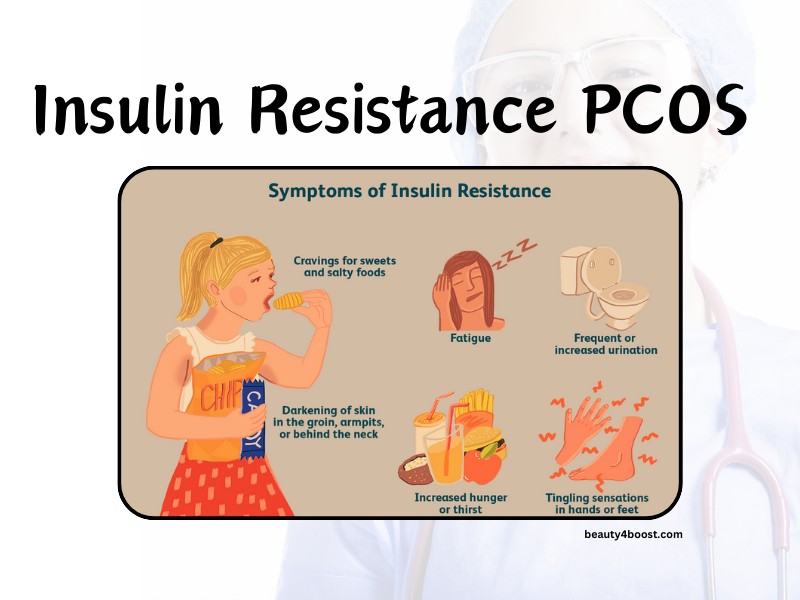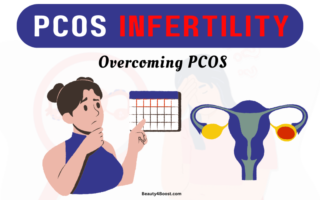Insulin Resistance PCOS: Unlocking the Connection
Welcome to the world of insulin resistance and PCOS, a complex interplay between hormones and metabolism that affects many women. In this comprehensive guide, we will delve deep into the topic, exploring the intricacies of insulin resistance in Polycystic Ovary Syndrome (PCOS). From understanding the fundamentals to practical management tips, we’ve got you covered.
What is Insulin Resistance PCOS?
In our quest to unravel the mysteries of insulin resistance PCOS, let’s begin with the basics. Insulin resistance is a condition where the body’s cells don’t respond effectively to insulin, a hormone that regulates blood sugar. When this condition coexists with PCOS, it can exacerbate the symptoms and complications of both disorders.
Insulin Resistance PCOS, often referred to as “IR-PCOS,” is a challenging medical condition that occurs when insulin resistance is present in women with PCOS. It’s a double whammy, as PCOS itself is characterized by hormonal imbalances and the formation of small cysts in the ovaries.
Insulin resistance in PCOS can lead to various complications, including weight gain, infertility, and an increased risk of type 2 diabetes. Therefore, understanding the connection between these two conditions is crucial.
The Complex Relationship
To comprehend insulin resistance PCOS fully, we need to delve into the complex relationship between the two. In PCOS, hormonal imbalances, specifically higher levels of androgens (male hormones), lead to insulin resistance. This resistance, in turn, triggers the pancreas to produce more insulin, resulting in elevated insulin levels in the bloodstream.
High insulin levels stimulate the ovaries to produce more androgens, leading to a vicious cycle. This heightened androgen production exacerbates PCOS symptoms, such as irregular periods, acne, and excessive hair growth.
Symptoms of Insulin Resistance PCOS
Weight Gain: Insulin resistance PCOS often leads to unexplained weight gain, especially around the abdomen.
Irregular Periods: Menstrual irregularities are common, with some women experiencing missed or infrequent periods.
Acne and Skin Issues: Hormonal imbalances can cause acne and skin problems.
Excessive Hair Growth: Known as hirsutism, it involves increased hair growth on the face, chest, and back.
Infertility: Insulin resistance can hinder ovulation, making it challenging to conceive.
Dark Skin Patches: Acanthosis nigricans, dark and thickened patches of skin, may appear, primarily in body folds.
Diagnosing Insulin Resistance PCOS
Diagnosing IR-PCOS involves a combination of symptoms, blood tests, and a pelvic ultrasound. Blood tests assess hormone levels, including insulin, androgen, and glucose. The ultrasound is used to identify ovarian cysts.
Managing Insulin Resistance PCOS
Managing insulin resistance in PCOS is essential for improving quality of life and reducing long-term health risks. Here are some strategies:
Lifestyle Modifications
Healthy Diet: Opt for a balanced diet with a focus on whole grains, lean proteins, and plenty of fruits and vegetables.
Regular Exercise: Engage in regular physical activity to improve insulin sensitivity.
Weight Management: Achieve and maintain a healthy weight to reduce insulin resistance.
Medications
Metformin: A medication that helps control blood sugar levels and improve insulin sensitivity.
Birth Control Pills: Can regulate menstrual cycles and reduce androgen levels.
Fertility Treatments
For those trying to conceive, fertility treatments like ovulation induction and in vitro fertilization (IVF) may be necessary.
FAQs
Q: Can insulin resistance PCOS be reversed?
A: While it can’t be completely reversed, lifestyle changes and medications can help manage the condition effectively.
Q: Is insulin resistance PCOS genetic?
A: There is a genetic component, but lifestyle factors also play a significant role.
Q: How does insulin resistance affect fertility in PCOS?
A: Insulin resistance can disrupt ovulation, making it challenging to conceive. Managing insulin levels can improve fertility.
Q: Are all women with PCOS insulin resistant?
A: No, but a significant portion of women with PCOS experience insulin resistance.
Q: Can insulin resistance PCOS lead to diabetes?
A: Yes, women with IR-PCOS are at a higher risk of developing type 2 diabetes.
Q: Is there a specific diet for insulin resistance PCOS?
A: While there isn’t a one-size-fits-all diet, a balanced and low-glycemic diet is generally recommended.
Conclusion
In the realm of women’s health, understanding the intricate dance between insulin resistance and PCOS is vital. With the right knowledge, lifestyle changes, and medical interventions, the challenges posed by insulin resistance PCOS can be managed effectively. Remember, you’re not alone in this journey, and there are resources and healthcare professionals ready to support you.




